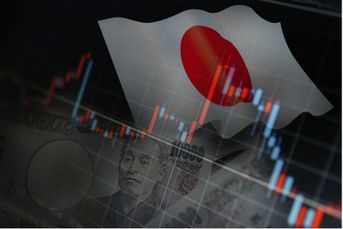Treasury bears are capitulating as Fed buying meets fiscal cliff worry
Until October, Donald Ellenberger, who manages $10 billion for Federated Investors Inc., shunned Treasuries as the U.S. economy…
Until October, Donald Ellenberger, who manages $10 billion for Federated Investors Inc., shunned Treasuries as the U.S. economy improved and 10-year notes yielded less than inflation.
Now he can’t afford to stay out.
Mr. Ellenberger has plenty of company. Bond bears from Brown Brothers Harriman & Co. to T. Rowe Price Group Inc. are buying Treasuries though the 1.69% yield on 10-year notes is less than the rate of inflation, and returns on the $10.9 trillion of marketable debt are the lowest in three years.
The combination of Federal Reserve efforts to stimulate the economy by buying bonds and the potential slowdown should politicians fail to avert the so-called fiscal cliff of tax increases and spending cuts has made Treasuries the debt that money managers have to own. Even investors who shun Treasuries don’t see yields of the 10-year note rising much above 2%.
“Treasuries offer little real value, but in the short term, it is just hard to be a bear,” Mr. Ellenberger said in a Nov. 19 interview.
Federated has moved from significantly “underweight” Treasuries, compared with benchmark performance measures, to adding them.
Yields have fallen since the Nov. 6 election set up a budget showdown between President Barack Obama, who wants higher taxes on the wealthy and less spending, and Republican lawmakers who oppose raising tax rates on the rich.
If they can’t agree, $607 billion in spending cuts and tax increases starting Jan. 1 will cause the world’s biggest economy to contract 0.5% next year, according to the Congressional Budget Office.
“Uncertainty” about the fiscal cliff, debt limits and the long-term challenges of balancing the U.S. budget are already “affecting private spending and investment decisions, and may be contributing to an increased sense of caution in financial markets, with adverse effects on the economy,” Federal Reserve Board Chairman Ben S. Bernanke said during a Nov. 20 speech at The Economic Club of New York.
MODEST RATE RISE?
The 10-year Treasury yield will rise to 2.1% by the end of September, economists said in a Nov. 9-14 Bloomberg News survey. The forecast is down from 2.5% in a poll conducted July 6-10 and compares with the annual average rate of 6.49% during the past half century.
With the Fed’s policy measures, Treasury yields are “ignoring the progress that has been made on the economic front,” Jeffrey Schoenfeld, chief investment officer at Brown Brothers Harriman, which manages $33 billion in assets, said in an interview Nov. 16.
Gross domestic product in current dollars grew at an annualized rate of 4% from July to September, while the 10-year yield averaged 1.62%, a difference of 2.38 percentage points. The gap reached a record 2.9 percentage points May 31.
“The fundamental value of Treasuries should point to higher yields here, but the uncertainties of the fiscal cliff and the Fed on hold is keeping yields down,” Steven Huber, head of strategy at T. Rowe Price, which manages $58.3 billion in taxable-fixed-income assets, said in an interview Nov. 16.
He began adding Treasuries this quarter after preferring corporate debt.
The Fed injected cash into the economy by purchasing $2.3 trillion in bonds from 2008 to 2011 and said that it will hold short-term interest rates near zero through mid-2015.
Policymakers probably will buy about $85 billion in bonds per month starting early next year and continuing into the second half, John Williams, president of the Federal Reserve Bank of San Francisco, said in a Nov. 14 speech.
“There is a lot of pressure for rates to rise, but with the Fed in action, any rise will be pretty modest,” Scott Minerd, who oversees more than $125 billion as the chief investment officer of Guggenheim Partners LLC, said in an interview Nov. 5.
Learn more about reprints and licensing for this article.








